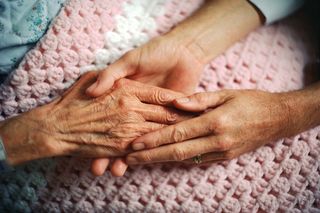 One of the biggest reasons not to act when you suspect elder abuse is taking place is simply not knowing what to do. We know who to call for domestic violence or when a child is being abused. But for an elderly neighbor? The same kind of help and the same anonymity is in place – something most of us just don't know.
One of the biggest reasons not to act when you suspect elder abuse is taking place is simply not knowing what to do. We know who to call for domestic violence or when a child is being abused. But for an elderly neighbor? The same kind of help and the same anonymity is in place – something most of us just don't know.
The Avery (NC) Journal-Times' recent article, "Safe steps when suspecting elder abuse," discusses suggestions from the North Carolina Division of Aging and Adult Services to put your mind at ease. In that state, people are encouraged to contact the local Adult Protective Services (APS), where a trained social worker will visit the neighbor and assess the situation.
Last year the state saw more than 24,000 reports of suspected abuse, neglect, or exploitation, which indicates that many individuals did do something to help their neighbors. But the national statistics say that only 1-in-5 incidents of elder abuse get reported. As a result, many incidents may have gone without any help.
North Carolina's laws require that anyone having reasonable cause to believe that a disabled adult is in need of protective services must make a report to the local Department of Social Services (DSS) APS unit. DSSs are statutorily mandated to receive information reported and determine if the report satisfies the criteria for evaluation. North Carolina law protects adults with disabilities age 18 and older, but the majority of reports involve those who are 60 years of age and older.
Elder abuse can take many forms, such as financial, physical, emotional or sexual abuse. Cases can even include neglect by a caretaker, abandonment, isolation, abduction or self-neglect—and many involve more than one type of abuse.
Just as people are advised "If you see something, say something," you should take the same approach to the possibility of elder abuse. If you think that something is not right, make a call to your local Adult Protective Services (APS). Sometimes our instincts give us very accurate information, and what seems wrong to you is a clear signal that abuse is taking place.
Think of it this way – the worst that will happen is that your elderly neighbor will enjoy an unexpected visit from a caring social worker.
Reference: The Avery (NC) Journal-Times (February 17, 2016) "Safe steps when suspecting elder abuse"
 Houston Estate Planning and Elder Law Attorney Blog
Houston Estate Planning and Elder Law Attorney Blog

